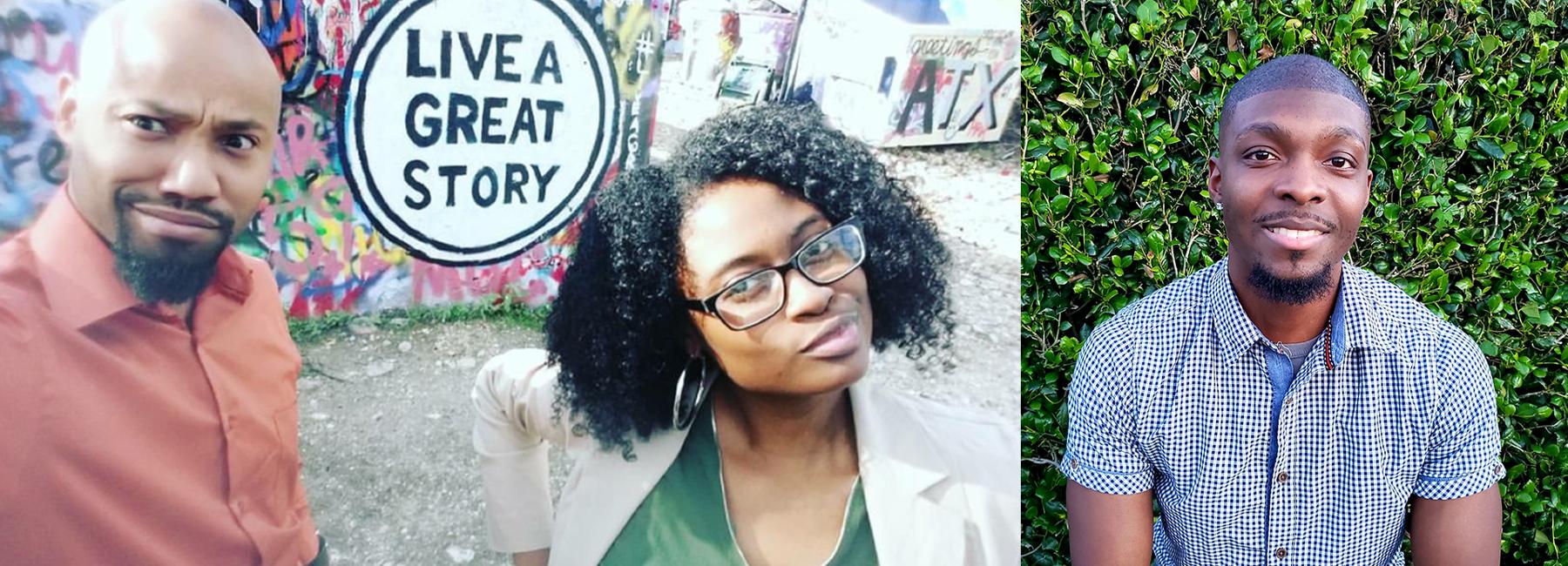How to Help
Interested in giving to PUSH? Click here for ways to help.
Clearly, the statistics involving foster care and higher education are sobering —
70% of youth in foster care want to go to college, only 3% go on to earn a degree.
What are your thoughts about those numbers, including how to change them?
Hicks: A lot of what I do now is just letting kids know they can go to college, and what
they need to do. I don’t want it to be a situation where no one ever told them anything.
What they choose to do with their life is what they choose to do. But I’m going to
be that person who tries to encourage you and tries to help open up your eyes to the
different aspects of life and the things that you can do.
Davis: When you see the stats, what you naturally do is put yourself in a category where
you’re not part of that 3%. You think, ‘They don’t have any expectations of us, so
I shouldn’t have those expectations of myself.’ When I was growing up, I always heard,
‘Kids like you don’t go to college, they don’t succeed.’ Adults have to tell them
that they can go to college, and tell them about the resources they need to get there
and the resources that are available once they are there.
Hamilton: It’s a sad statistic, but it’s one that I try to look at in a positive way. If 70%
want to go to college, that means those are all kids we can potentially support to
go on to earn a degree. If they have the desire, we can give them the will to make
it happen. If PUSH wasn’t around, who knows how many kids from foster care would have
come to campus and left after the first semester? If PUSH had been at my first college,
I can almost guarantee you I wouldn’t have left after that first semester.
You’re all parents now. What is that experience like for you?
Hamilton: I am a proud wife and mother of four beautiful children. I love being a mother and
being able to provide my children with a life I didn't have. I am also blessed to
be able to work for myself because this allows me the opportunity to spend quality
time with my children. What I am doing now is providing an easier life for my children
as kids and as adults. When they transition into adulthood they certainly will have
more than enough resources to live a successful life. This is what I am sure all parents
want, and I am able to make this happen. This truly makes me feel very proud. Being
a mother is the best thing that has ever happened to me. Motherhood pushes me to be
the best person I can be and everything I do is for my kids. I live to make sure they
are emotionally, spiritually, educationally, physically, and mentally well taken care
of. My kids mean everything to me. There is nothing I wouldn't do for them.
Davis: I’ve been married for two years and have a 17-month-old daughter. It’s a very different
chapter of my life, and the most life-changing chapter. This is not like anything
else I’ve ever had to do. I have to teach her morals and values and guide her. This
child is a mirror of myself — we’re doing things hand-in-hand. It’s been one of the
most incredible things that I’ve had to do, and sometimes the hardest. You think you’ve
overcome certain things in life, but your child makes you look directly at some of
those challenges and traumas. I never had safety — that’s one of the biggest things
I’ve had to deal with all my life. The coolest thing I’ve been able to do is provide
a safe environment for her.
Hicks: I have a 2-year-old and a 4-month-old. Growing up, I always wanted kids because of
all the things I missed as a kid. My dad was never around, so I always said, ‘When
I have kids, I’m going to make sure I’m at all their events. I’ll always approach
them with love, and discipline with love.’ Putting your kids to bed, waking them up,
sending them off to school, watching them grow up, sharing your knowledge with them.
That’s something I always greatly desired.
